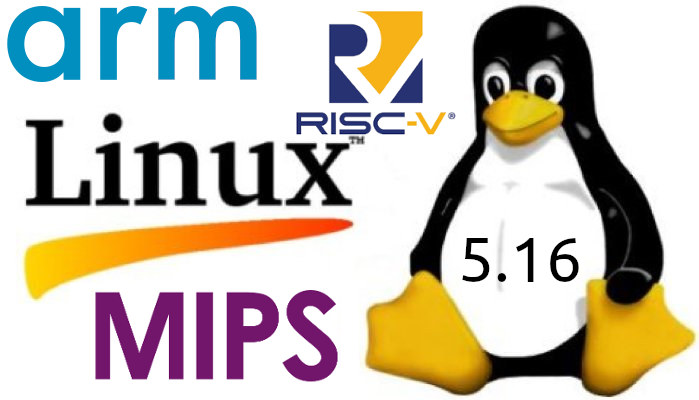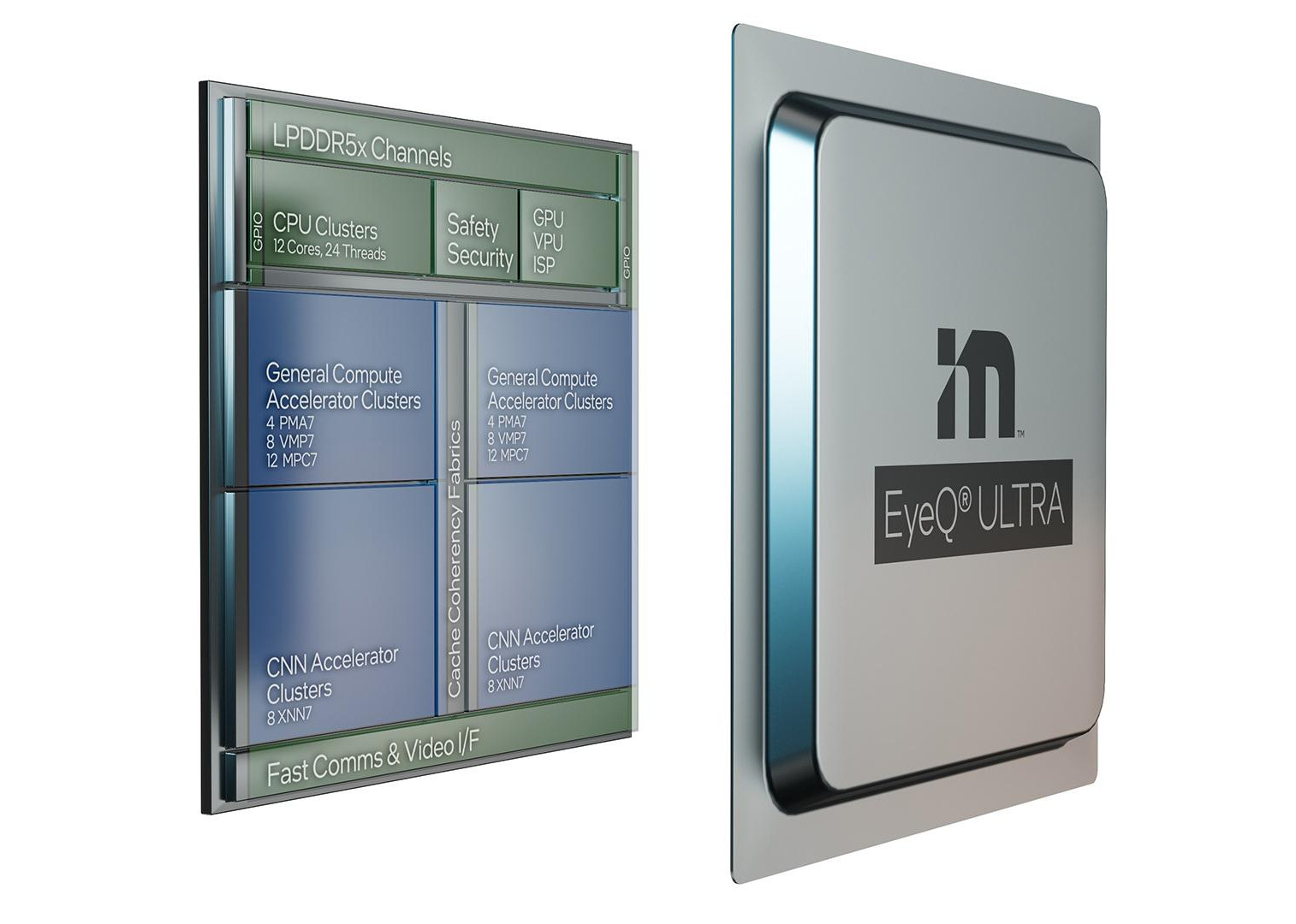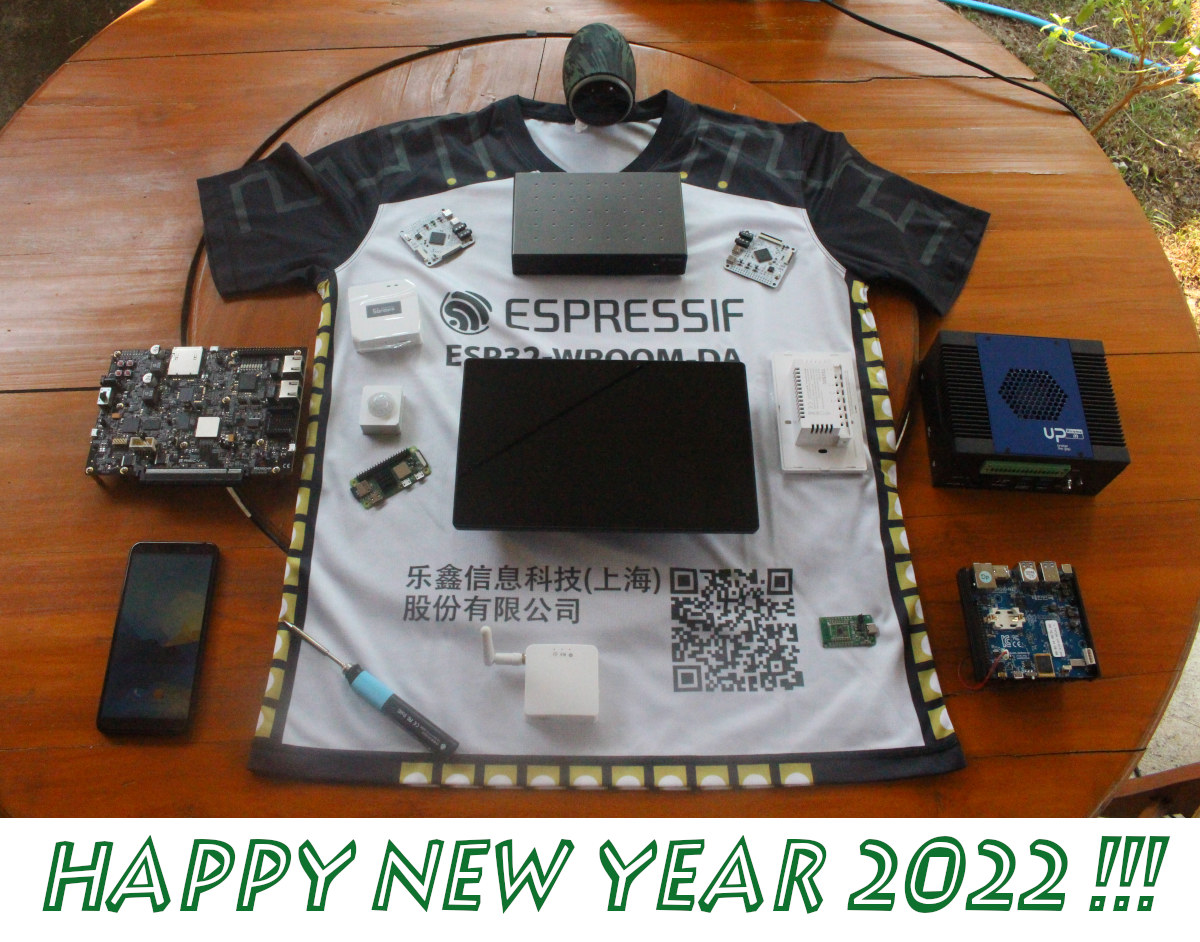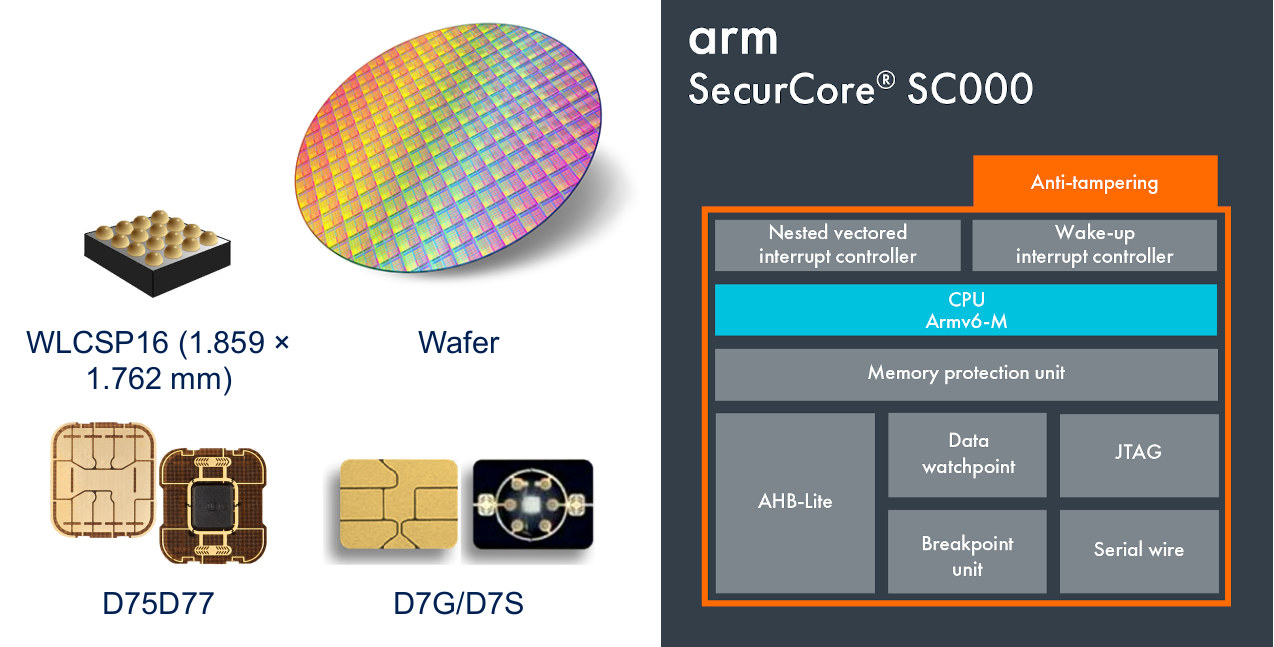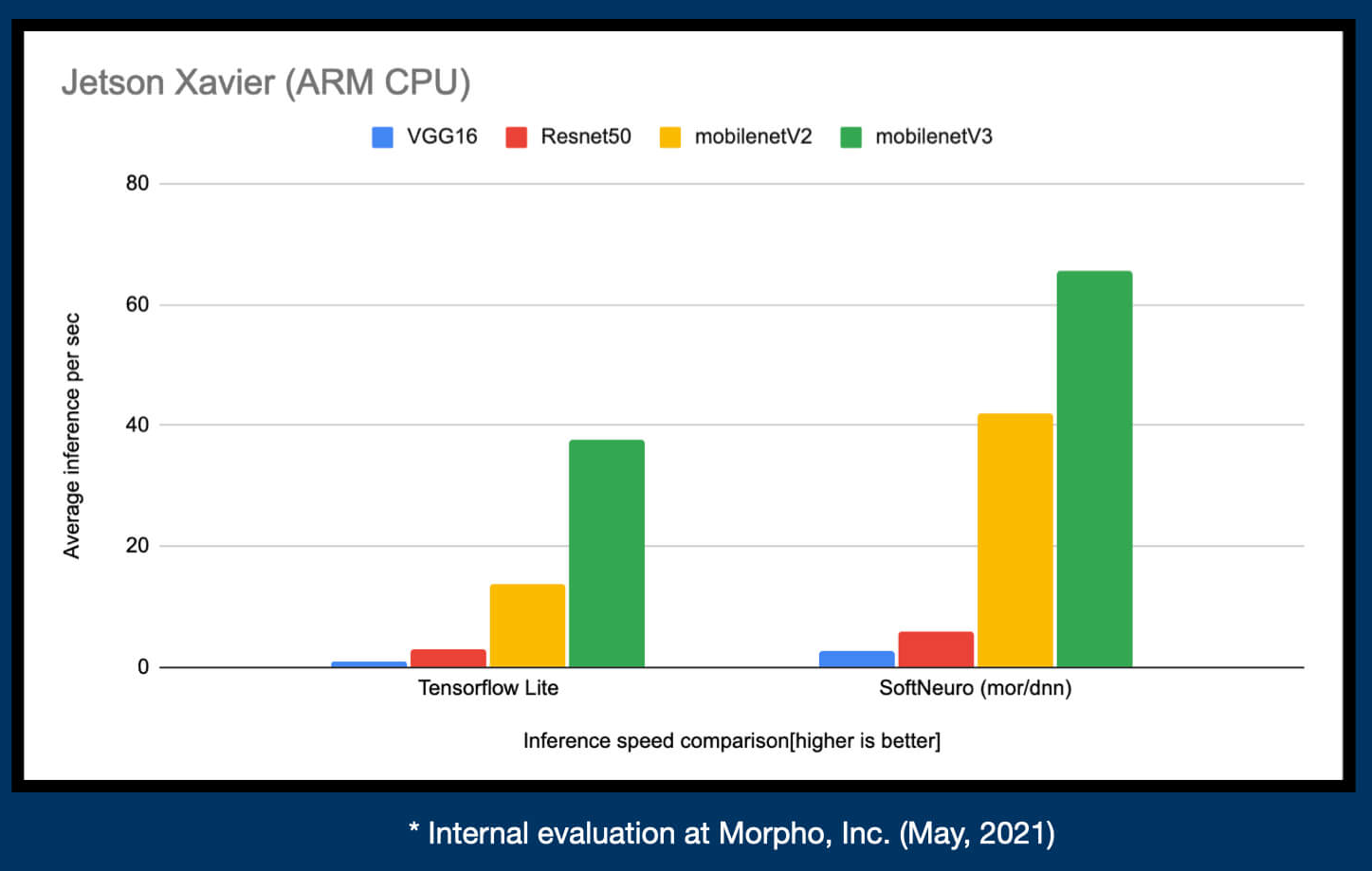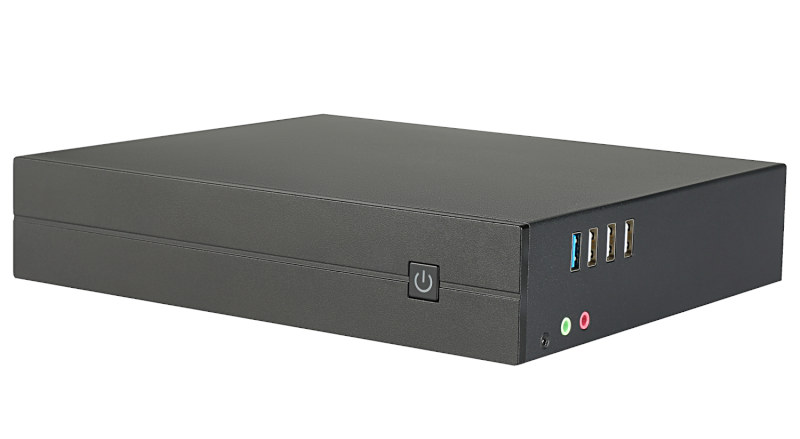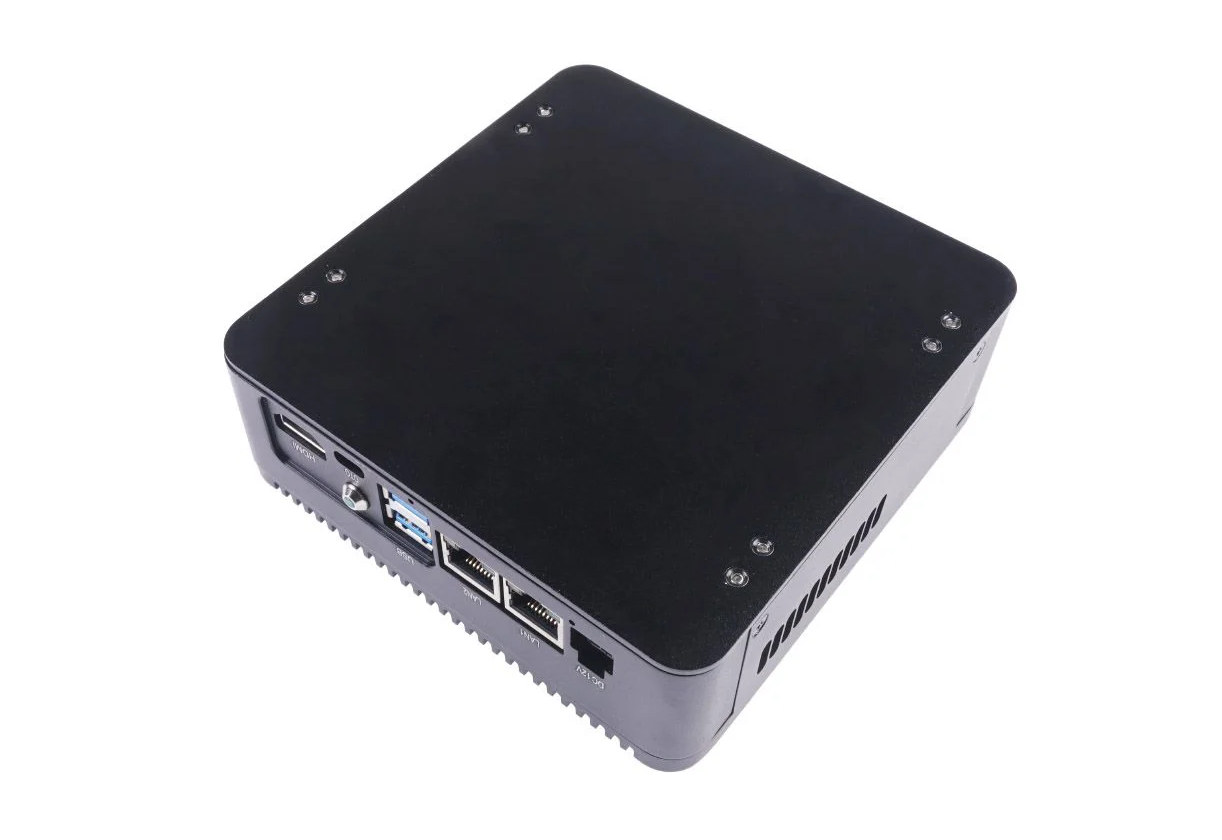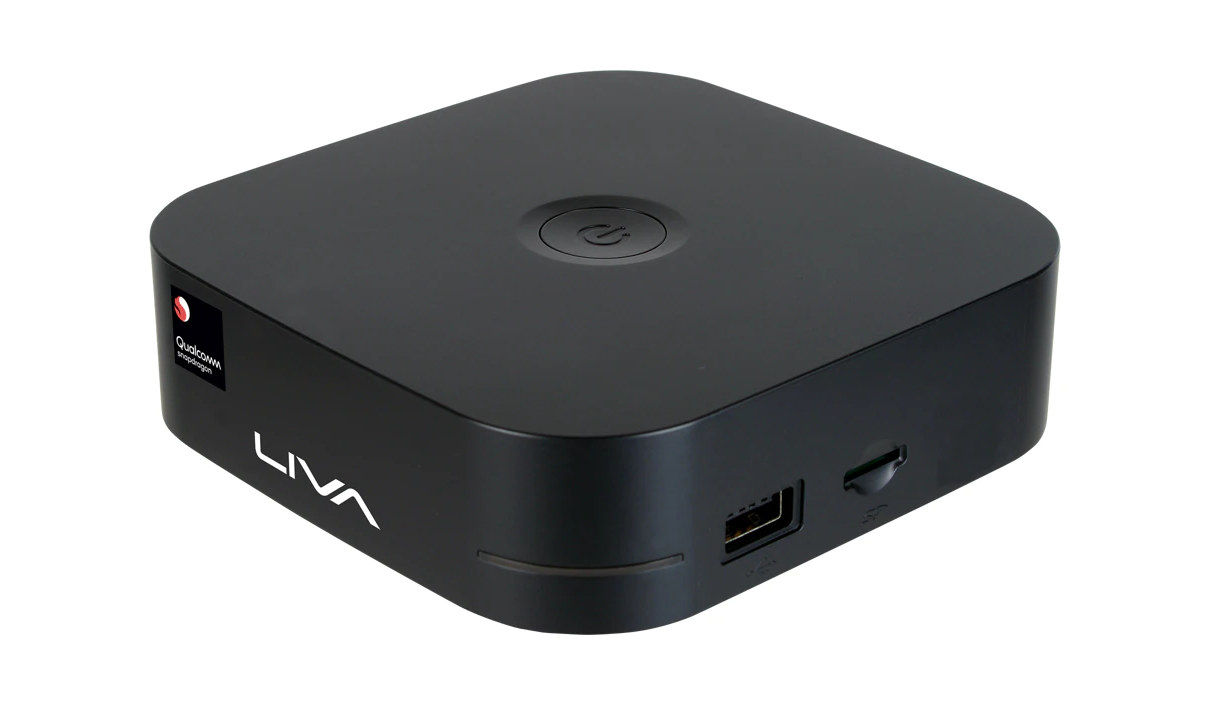Linus Torvalds has just announced the release of Linux 5.16: Not a lot here since -rc8, which is not unexpected. We had that extra week due to the holidays, and it’s not like we had lots of last-minute things that needed to be sorted out. So this mainly contains some driver fixes (mainly networking and rdma), a cgroup credential use fix, a few core networking fixes, a couple of last-minute reverts, and some other random noise. The appended shortlog is so small that you might as well scroll through it. This obviously means that the merge window for 5.17 opens tomorrow, and I’m happy to say I already have several pending early pull requests. I wish I had even more, because this merge window is going to be somewhat painful due to unfortunate travel for family reasons. So I’ll be doing most of it on the road on a laptop […]
Intel Mobileye EyeQ Ultra RISC-V processor targets Level 4 autonomous driving
Let’s carry on with Intel’s CES 2022 news, but with a twist as Mobileye EyeQ Ultra does not include any x86 cores, but instead, the automotive processor features 12 RISC-V cores, Arm GPU and DSP, and aims to bring Level 4 autonomous driving to cars thanks notably to a 176 TOPS AI accelerator. The company says EyeQ Ultra packs the performance of 10 EyeQ5s in a single package, with the single chip solution avoiding the power consumption and costs related to integrating multiple SoCs together. Intel Mobileye EyeQ Ultra specifications highlights: CPU – 12 RISC-V CPU cores (24 threads) GPU – Unnamed Arm GPU DSP – Unnamed Arm DSP SIMD cores VLIW cores Coarse grained reconfigurable array (CGRA) cores CNN accelerator clusters Two sensing subsystems One camera-only system Radar and Lidar combined system 5-nanometer process technology Mobileye provides both the chip and software with for instance high-definition map and […]
Year 2021 in review – Top 10 posts and statistics
As per tradition, we’ll look back at what happened during the year in the last post, and see what 2022 may have in store, plus the usual statistics from CNX Software website. The biggest story of 2021 has to be the worsening of semiconductors shortages with extremely long lead times, prices of some components going up multiple folds, constant complaints on Twitter about availability and prices. I think I even saw a website, hopefully misconfigured, showing an estimated availability of a specific STM32 MCU in 2037. This also gave rise to opportunities and board redesigns, with MotorComm Ethernet chips replacing some Realtek chips in SBCs such as NanoPi R2C and Orange Pi R1S Plus LTS, and CH9102F showing up as a replacement for CP2104 in some IoT boards. We also got some interesting Arm processors, but sadly the high-expected Rockchip RK3588 got delayed by another year, although it’s getting really […]
STMicro ST31N600 Arm SecurCore SC000 microcontroller includes biometric security, energy harvesting
Today, I’ve learned about an Arm core family I’d never heard about: the Arm SecurCore family for smartcard and embedded security applications. The Arm SecurCore SC000 (Cortex-M0 based) and Arm SecurCore SC300 (Cortex-M3 based) have been around for years, but they’ve just been brought to my attention with STMicro ST31N600 secure microcontroller announcement. Manufactured with STMicro’s 40nm eSTM technology, the ST31N600 is designed for contact and contactless payment cards, ID cards, and transport ticketing thanks to circuitry for energy harvesting, and support for EMV ISO 7816, ISO 14443, and ISO 18092 standards. STMicro also introduced ST31N500 and ST31N400 microcontrollers with less flash memory, but other the same specifications as ST31N600: MCU Core – Lockstep 32-bit Arm SecurCore SC000 up to 60 MHz Memory – 16 KB of user RAM Storage with 25-year retention, 500,000 erase/write cycle endurance ST31N600 – 608 KB ST31N500 – 512 KB ST31N400 – 416 KB RF […]
Download a free trial of the SoftNeuro Deep Learning SDK for Intel and Arm targets (Sponsored)
Morpho, a global research & development company established in Japan in 2004 and specialized in imaging technology, is now offering a free trial for the SoftNeuro deep learning SDK working on Intel processors with AVX2 SIMD extensions, 64-bit Arm targets, while also leveraging OpenCL and/or CUDA. Some of the advantages of SoftNeuro are that the framework is easy to use even for those without any knowledge about deep learning, it’s fast thanks to the separation of the layers and their execution patterns, and it can run on several different hardware and OS being cross-platform. SoftNeuro relies on its own storage format (DNN format) to deliver the above advantages. But you can still use models trained with any mainstream deep learning framework. TensorFlow and Keras models can be directly converted to the DNN format, while models from other frameworks can be converted first to the ONNX format and then to the […]
Phytium D2000 ARMv8 Mini PC runs Linux, supports gaming with Box64 emulator
Dragonbox is now taking pre-orders for a “Phytium D2000 ARMv8 Mini PC” with an octa-core 64-bit Arm processor, 16GB RAM, a 512GB NVMe, and an AMD Radeon RX550 GPU that makes it powerful enough to play older PC gaming like Crysis through Box64 x86_64 emulator, the 64-bit version of Box86 x86 emulator compatible with Raspberry Pi and other 32-bit Arm platforms. If the Dragonbox name sounds familiar, it’s because that’s the community that developed the Pyra handheld Linux game console/PC, except now they are offering a mini PC based on Phytium D2000 processor based on the same FTC663 Armv8 cores as found in the earlier Phytium FT2000/4 processor, with both Pythium SoC specifically designed for desktop PCs, contrary to most other Arm SoCs on the market. Phytium D2000 mini PC specifications: SoC – Phytium D2000 ARMv8 octa-core custom Armv8 (FTC663) desktop processor @ 2.3 – 2.6 GHz with 8MB L2 […]
Jetson EX1 and SUB mini PCs put Xavier NX SoM into metal enclosures
Seeed Studio has just unveiled another Jetson Xavier NX mini PC with the Jetson EX1, plus some metal enclosures for the Jetson SUB mini PC announced last month with the official NVIDIA Jetson Xavier NX developer kit, a 128GB SSD, and the Re_Computer case comprised of an aluminum frame and a plastic cover. Jetson EX1 mini PC The Jetson EX1 mini PC has a different design with a custom carrier board offering dual Gigabit Ethernet and support for four MIPI CSI cameras, a 256GB NVMe SSD, and an aluminum enclosure designed to help with cooling, albeit the computer is not completely fanless since a 5V fan is included in the design as well. Jetson EX1 specifications: NVIDIA Jetson Xavier NX module CPU – 6-core NVIDIA Carmel ARMv8.2 64-bit processor with 6 MB L2 + 4 MB L3 cache GPU – NVIDIA Volta architecture with 384 NVIDIA CUDA cores and 48 […]
ECS LIVA Mini Box QC710 Desktop – A $219 Windows on Arm Developer Kit
The “Snapdragon QC710 Developer Kit” for Windows 10 on Arm app development was unveiled last May, and it’s now available for $219 on Microsoft Store as the “ECS LIVA Mini Box QC710 Desktop”. The developer kit can also be purchased at a discount for $197.10 by students, parents(!), teachers, and members of the military. I suppose this applies only to the US military and showing your Taliban membership card may not work. The developer kit looks like a standard mini PC and features a Qualcomm Snapdragon 7c Compute Platform (SC7180), 4GB RAM, 64GB eMMC flash, HDMI output, 10/100M Ethernet and WiFi 5, and several USB ports. ECS LIVA Mini Box QC710 Desktop specifications: SoC – Qualcomm Snapdragon 7c Compute Platform (SC7180) with octa-core Qualcomm Kryo 468 (2x Cortex-A76, 6x Cortex-A55) CPU @ up to 2.4 GHz, Adreno 618 GPU System Memory – 4GB Storage – 64GB eMMC flash, MicroSD card […]


